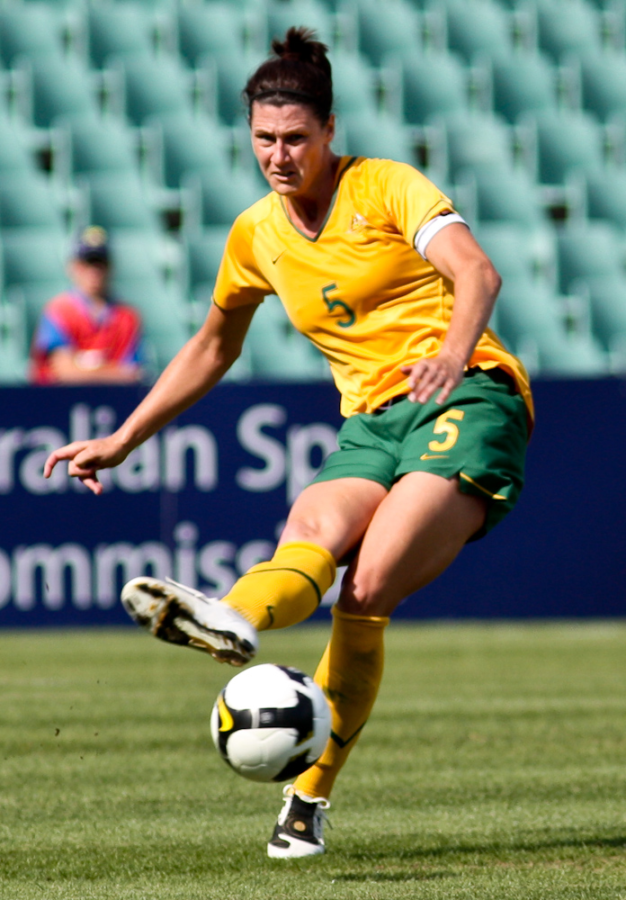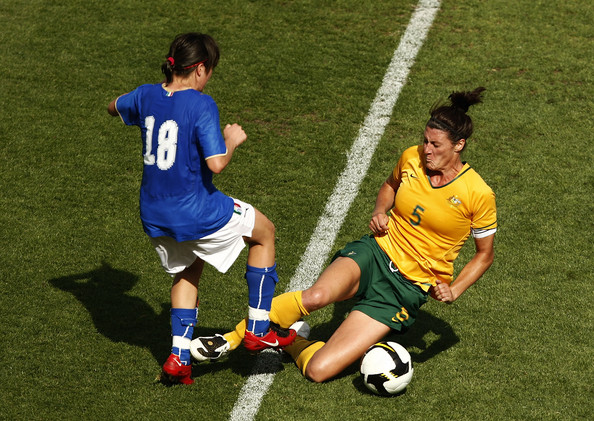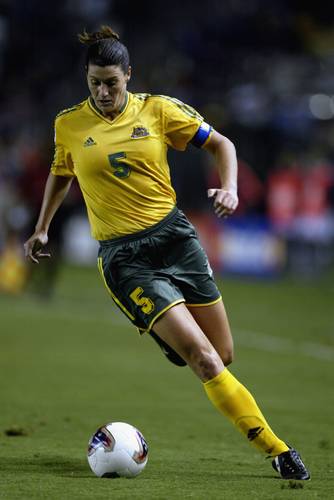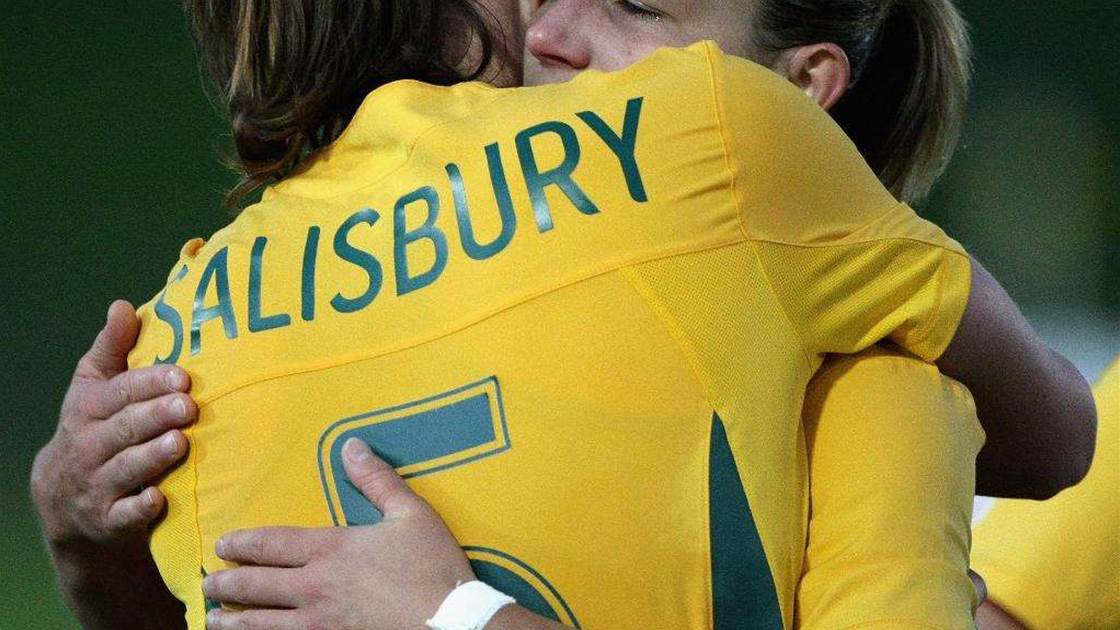
First and foremost, Salisbury was an outstanding footballer. Peerless.
No one, male or female, has played for Australia more times.
One hundred and fifty one caps across fifteen years tells its own story, but ask her team-mates and they’ll tell you about the go-to player, the fearless leader, the bulletproof defender of Australian women’s football.
She began her international career in 1994. The Women’s World Cup had been inaugurated just three years earlier and Australia missed out on a ticket after a qualification stumble against New Zealand.
When the Matildas made their bow on the world stage in 1995, Salisbury, then 21, made only a moderate contribution to a campaign that was over as soon as it began. Three straight losses and the Matildas were the first team on a plane home.
Four years later, Australia earned its first Women’s World Cup point and Salisbury herself netted a consolation goal in a 3-1 defeat to China.
Most significantly, that goal was scored against a backdrop of 30,000 fans at East Rutherford in the United States, where the 1999 Women’s World Cup became a watershed moment for women’s football.

Even the uninitiated might recall the sight of Mia Hamm, unbridled and unkempt, celebrating the hosts’ triumph in the final in front of 90,000 spectators that were authentically engaged by the occasion.
That was evidenced by how the moment struck a chord with so many. Bill Clinton invited Hamm and her team-mates to the White House to celebrate the triumph. Later, Sepp Blatter, during happier times, would declare the future of football was feminine.
Outside of the United States, the home of women’s football in many ways, the penny had dropped.
Women’s football was finding the credibility to match the ambition of its growing legion of players and supporters. Australia was, by and large, yet to be convinced.

The grandiosity and opportunity offered by women through football and vice versa existed only in the minds of its most enlightened. Salisbury was chief among them.
Like her male contemporaries and by fault or design, Salisbury needed to blaze a trail abroad.
On the back of the Women’s World Cup success in 1999, US Soccer launched
the Women’s United Soccer Association (WUSA), the world’s first fully professional women’s football competition, in 2000.
Salisbury would seize a chance to join the New York Power. The club doesn’t exist anymore. Nor does the league.
A failure in a sense, but the point is this; Salisbury saw the long game, the one that matched her drive and ambition. The one women play today.
In an era where professional football was a pipe dream of women footballers, Salisbury had the determination, and the quality, to push its case.

(c) Getty Images. Cheryl in action for the Matildas.
Salisbury was one of a handful of Australian women trying to crack the code when WUSA shut its doors in 2003.
Today, you’ll need more than your fingers and toes to count the number of Australian women playing – and thriving – in professional conditions at home and abroad.
It would become the calling card of her career on the pitch also. When the game needed a hero, it need only look to Cheryl.
It was Salisbury that settled the nerves with Australia’s first ever goal at an Olympic Games, when Sydney hosted in 2000.
By the 2003 Women’s World Cup, Salisbury had been given the captain’s armband.
In 2007, in Chengdu, China, Salisbury found the moment to encapsulate her Matildas career.
Time was almost up, Australia needed a goal to achieve history – a first ever appearance in the knockout stages of a Women’s World Cup.
Effectively the last kick of the game fell to Salisbury and though it was far from her best, it secured Australia’s passage through to the Quarter-finals.

Twice, Salisbury was included by FIFA in its World XI. In those days, the World XI existed beyond a sheet of paper and Salisbury found the back of the net in an exhibition match in China in 2007.
These accolades are important and they’re necessary to articulate what a legend of the game Salisbury was and is.
But what Australian football should most remember Salisbury for is yet to occur.
Watch this space for the coming years, when the current generation, emboldened by the foresights of Australia’s greatest ever Matilda, return to the podium to be crowned world champions.
If for nothing other than getting the timing right, we hope they think of Cheryl.








